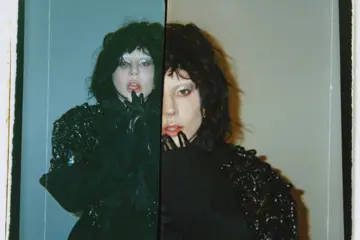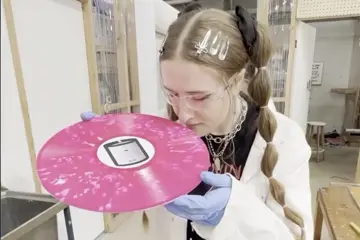“Cinema, for so long, comes from the male point-of-view. But, with this film, we are looking at prostitution and sexuality from a female point-of-view,” says the 39-year-old filmmaker.
In Elles, Juliette Binoche plays a reporter interviewing Joanna Kulig and Anaïs Demoustier about their dual lives as students and prostitutes, and what follows is, essentially, a feminist look at sexual politics in the age of hyper-capitalism; a piece of provocation that the 39-year-old is proud to say “actually created a political discussion divided between the left- and the right-wing”, in her homeland. For the extreme patriarchal/patriotic/Catholic right-wing, Szumowska says, “this film was terrible; I was shameful, not moral, a woman who didn't know her place.”
Szumowska's grew up in communist Poland, the daughter of photojournalists. Initially going to art school (“I found studying the history of art really boring”) while also studying ballet, she ended up in the historic Lodz Film School (the place that turned out any Polish filmmaker of note, and, thus, Polanski, Kieslowski, Wajda et al.) “kind of by accident”, siting the entrance exam on a whim. Her early short-film documentary, Silence, became Szumowska's passport, both as filmmaker and individual. “Suddenly I was travelling around with my short films, going to Cannes, going to Singapore, seeing other cultures, learning to speak English; the world really opened up for me,” she recounts.
Szumowska's first three films, Happy Man, Stranger and 33 Scenes From Life, all hewed towards harsh realism, but she worked in a more lyrical mode as producer on Lars von Trier's Antichrist. While working for Zentropa, von Trier's production company, French producer Marianne Slot recruited Szumowska to adapt a French Elle magazine article about young college students working as part-time prostitutes into a feature film, and gave her a Danish psychotherapist, Tine Byrckel, as a co-writer.
“Tine was the one who was thinking in these analytical terms, about feminism and male and female roles in society; I was just concentrating more on emotions,” Szumowska says, of their collaboration. “I met these kind of girls in Poland, and Tine met with two girls in Paris. I found it extremely surprising and interesting. I thought I was going to meet these young girls who have gotten a bit confused with what they're doing with their lives, and when I asked them about it there was going to be a kind of shame. But it was the opposite of that; they were not victims at all, they were not doing this because they had been forced by circumstance. I think any time society is thinking of a girl who is sleeping with men for money, they see her as a victim of the situation, and a victim in general… They are, obviously, doing something which is good for them now, but they are paying a huge price for their future. But that's not unique to them; almost all of us do something for which we are paying a huge price in our own futures. We're all going through our traumatic experiences. It's really difficult to think like that, to step back and not judge these girls for taking pleasure out of getting paid to have sex.”
WHAT: Elles
WHEN & WHERE: In cinemas now















